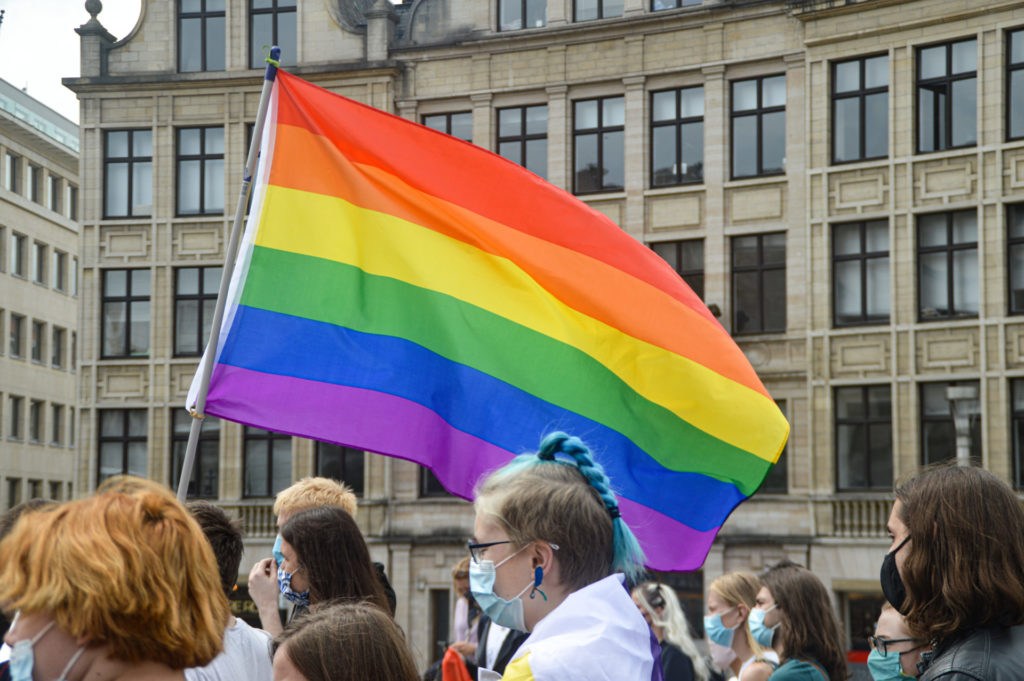After a 25-year-old gay man was attacked on Place Flagey in Brussels on Saturday afternoon, Belgium's Centre for Equal Opportunities and Against Discrimination (Unia) stated that reports of homophobia often concern more violent behaviour than others.
The man, who had just kissed his boyfriend before getting off a bus at Place Flagey in the Brussels municipality of Ixelles around 2:00 PM, was attacked by a man in his forties, who punched the 25-year-old in the face, and spat on him.
The attacker ran away, and the young man was hospitalised and received stitches. A complaint was filed with the police, who opened an investigation.
"Because of the homophobic nature of the events, we have informed Unia," Olivier Slosse, spokesperson for the Brussels Capital-Ixelles police zone, told Bruzz.
On Wednesday, Unia confirmed that it was following up on the attack.
More generally, Unia also noted that while reports of discrimination related to sexual orientation are in the minority (just 4.3% of all reports received by the centre), the acts are often more violent.
"This character of physical violence appears to be important," said Patrick Charlier, co-director of Unia, in relation to the other criteria of discrimination. "Proportionally, members of the LGBTQ community are more often victims of violent comments and acts rather than of discrimination (on the housing or job market, for example), which reflects a sociological reality."
Attacks against members of the LGBTQ community represent the highest proportion of hate crimes (over 35%) in Belgium, Charlier stressed.
Of the 41 acts of hate (which include homicide, intimidation and harassment, assault and battery, graffiti and defacement, and abuse of authority) recorded by Unia in relation to sexual orientation last year, 11 involved assault and battery, equal to 26.8% of cases.
In terms of proportion, this puts them ahead of racially-motivated hate crimes involving assault and battery (14.7%), or 21 out of 143 incidents.
Related News
- CEO Spa Francorchamps and two others found dead in suspected femicide
- De Croo joins call for EU to 'continue fight against discrimination of LGBTQ+ community'
- Demonstration in Brussels against femicide, homophobia, biphobia
In Belgium, there is "a fairly high degree of social acceptance" of the principle of equal rights for gay and heterosexual people, Charlier explained, referring to the fact that there is "no great questioning of marriage and parenthood."
"On the other hand, there is a kind of reaction that is more visceral than intellectual when people are confronted with homosexuality: when men hold hands, when women kiss, among other things," he said. "The aggressors feel insecure because it disturbs the gendered representations that have been acquired globally in society, and they react with violence because they can't stand it."
While homophobic murders are rarer than physical assaults, they do exist and are a regular feature in the news, he pointed out.
In the case of the double murder of Nathalie Maillet and her partner Ann-Lawrence Durviaux on the night of 14 August in Gouvy in the Luxembourg province, however, Charlier does not suggest that the perpetrator's intention was partly lesbophobic.
"The public action will surely die out without the investigation going very far, given that [the perpetrator, Franz Dubois, who was the husband of Maillet] committed suicide, but there may be traces in written exchanges and text messages of hostility or discomfort towards this homosexual relationship," he said.
"At the moment, nothing conclusive has been communicated in this sense and it may not have been a factor at all," Charlier added.
Additionally, in March of this year, the killing of David Polfliet, in a park in Beveren in the East Flanders province, was also believed to have a homophobic motive and lead to a number of Belgian politicians, including Prime Minister Alexander De Croo, speaking out in condemnation.
The majority of reports related to sexual orientation (64.4% in 2020 and 81.2% in 2019) come from men, although more and more women are reporting to Unia as well.
The number of reports for discrimination based on sexual orientation (109) remained relatively stable in 2020, compared to the average number of reports over the last five years.
Additionally, even though 24 fewer cases were reported in 2020 than in 2019, Unia does not think this is a result of societal progress, but rather a consequence of the imposed lockdowns and teleworking measures to curb the spread of the coronavirus.

